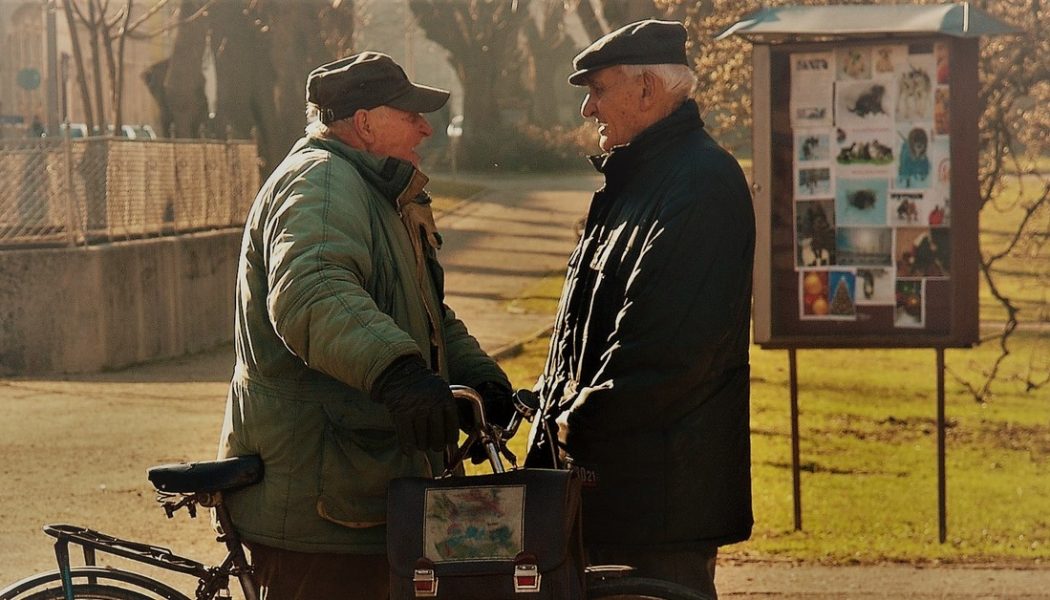
My friend is a Southern Baptist pastor and his statement about the Catholic Church floored me and it wasn’t about what you are probably thinking it was. He told me a story about when he was in seminary in the 80s. One of his seminary professors was teaching a class on missiology, which is the study of Christian mission. They did an exhaustive historical study on the spread of the Gospel. Toward the end of the class, one student asked what we could do to reach the world with the Gospel. Was it a matter of greater missionary zeal? His response was, “it isn’t just missionary zeal. We will reach the world with the Gospel when the Catholic Church recaptures her mission given to her by Jesus.” In other words, the Catholic Church holds the key to reaching the world with the Good News.
My Baptist friend agreed with his prof and has waited for Catholics to rise up. He said I was one of the few Catholics he had ever met, who was actually trying to evangelize. I promised him I am not the only one.
EVANGELIZING IS WRONG?
Did you know that nearly half of Practicing Christian Millennials believe evangelism is wrong. Not just that they won’t do it, but they believe it is morally wrong. They have largely absorbed the modern maxim that you shouldn’t “push your faith on others” and this is how they regard the work of an evangelist. In other words, the younger generation of Christians are moving backwards, in regards to evangelization, not forward.
Yet, the primary way we are meant to be agents of conversion to Jesus is through articulating the Gospel message. We MUST evangelize, if we are to be faithful followers of Jesus. So, how can we do this? What do we need to change in how we raise up disciples and then help them mature?
First of all, we need to face the fact that we are incomplete, as Christians, until we actively and vocally evangelize. As Paul said:
“How, then, can they call on the one they have not believed in? And how can they believe in the one of whom they have not heard? And how can they hear without someone preaching to them?” -Rom 10:14
The modern person is not willing to listen to a Catholic, merely because respect has been won, our credentials are up to date, or we have the right training. They will listen to us when they trust us. So, start with trust. Then move to intentional conversations on important things. Then ask big questions. Then win the right to explicitly evanglize and present the Gospel.
ZEAL?
Have you ever had a Mormon or Jehovah’s Witness come to your door? Did you feel like they were there to truly love you? Probably not. Most of us feel like we are being used and that they are selling something more than wanting to help us. This is because they don’t know us, aren’t really looking to enter into our lives and befriend us; rather, they are looking for a project they can complete. We are really just a part of a checklist. They do their door-to-door evangelism and boom…they are done with evangelizing others for the day, even if they make no converts.
I think there are some Catholics who approach evangelization the same way – as something to check off the list, in order to ” be a good Catholic“. It isn’t something they really intentionally try to grow into, get better at, or eventually get skillful at doing. This is a shame. We are made to evangelize, in fact, this is the core mission of all Christians! So, we ought to be aiming at getting better at it!
If you want to be a better evangelist, I hope the following suggestions are helpful to you. I have learned, through years of trial (and lots of error) what not to do.
5 Ways To Be A Better Evangelist
- Stop inviting non-Catholics to Mass. At first glance, this might sound counterintuitive, but let me explain. The Mass is not intended to be a tool for evangelization. It is meant for the Church to come together and worship God and be strengthened to go back into the world, where we evangelize others. So, it isn’t meant to evangelize others. Furthermore, many people will feel out of place in Mass and some may even be offended, because we do not invite everyone to take Communion. Finally, we can’t have good conversations in Mass and trying to explain what is happening (and talking thoughout Mass), isn’t appropriate. Therefore, instead of inviting someone to Mass, invite them to coffee or lunch. Invite them to join your friends at a dinner party. Invite them to go fishing. Whatever the event, find a time and place where you can talk to each other, in an informal setting, as a friend or someone interested in getting to know them. Which leads to the next point.
- Stop treating others as evangelization projects and more as people you love. Remember that feeling we talked about, of being treated like a project? Well, don’t do it to others either. Your job isn’t to fix others or to get them to convert to your way of thinking. Your job is to love other people. When you enter into a relationship with another person, that should be your ultimate goal. While you want what is best for them, you shouldn’t be pushy, argumentative, aggresive, or annoying. Rather, be personable, affable, interested in them, and genuine. Your evangelization should always flow out of a real relationship. Real relationship means we have the other person’s best interest at heart. This means being merciful and accepting folks (loving them) right were they are. If they choose to allow you to help them get someone better, it will be due to trusting you, not because you treated them as a project. St. Paul says it best when he says, “being affectionately desirous of you, we were ready to share with you not only the gospel of God but also our own selves, because you had become very dear to us.” -1 Thes 2:8
- Know the proper time and place for using apologetics. Apologetics (the reasonable defense of your faith) is a good tool to have at your disposal. That doesn’t mean it is appropriate for every situation. In fact, it can be detrimental at certain times. How many times have you been annoyed or defensive with someone because they dumped a big argument on your lap about something you disagreed with? When it comes to faith issues, that merely adds fuel to the fire. So, we have to know when to offer a good argument for why we believe something. In fact, it is best used when someone has a sincere question and they come to you, because they trust that you won’t judge them for asking it, try to convince them you are correct, or be argumentative about it. I have gotten to the point where I merely answer the question, to the best of my ability, and then let God do the big job, that is, moving their heart (if he chooses to do so and they say “yes”). I can’t convince anyone by merely dropping knowledge on them, but I can pray for them, do my best, follow-up with them, and be ok with their free will to choose.
- Ask more questions of others than they do of you. If you know the content of your faith well, then you might just gain a reputation, which means folks seek you out to ask you questions. Whenever this happens of me, I try to make sure to ask the other person more questions than they ask of me, so they can think through the issue themselves. When someone comes to a conclusion, based on thinking through an issue, they are more likely to truly believe it to be true. Rather than just receiving information, they have discovered a truth and that means much more. Furthermore, everyone likes a good listener and someone who is genuinely interested in hearing what they have to say. So, be that person. FInally, if someone then asks for your opinion, they are more open to receiving what you have to say because they know you have been open and sincere with them.
- Realize that understanding someone else’s viewpoint does not necessarily mean you agree with it. This is a tough one for many people. I realized I struggled with it when I was dating a young woman who was pro-choice. We had gotten pretty serious and had started to talk about some tough issues. She was a Christian and I assumed she was pro-life. When I found out she wasn’t, I got upset and flew off the handle. After I calmed down (a few days later), we had a good discussion about the issue. I realized that I didn’t know her as well as I thought. I also realized she hadn’t really thought through being pro-choice or pro-life, but had fallen into a “default” position of our culture. Once I understood where she was coming from, I asked her many questions. These questions got her thinking. She had a conversion and is now very pro-life…and my wife. To understand why she believed what she did wasn’t a compromise to my own beliefs, but allowed me to enter into her experience and walk with her. I didn’t agree with her, but loved her. This allowed me to be a channel of God’s grace, which ultimately changed her heart.
None of us will ever be a perfect evangelist, but all of us can get better. Evangelization doesn’t have to be awkward or scary. It can mean being a better friend and Christian. It can be natural.
“And as he sat at table in the house, behold, many tax collectors and sinners came and sat down with Jesus and his disciples. And when the Pharisees saw this, they said to his disciples, “Why does your teacher eat with tax collectors and sinners?” But when he heard it, he said, “Those who are well have no need of a physician, but those who are sick. Go and learn what this means, ‘I desire mercy, and not sacrifice.’ For I came not to call the righteous, but sinners.”” -Matt 9: 10-13








